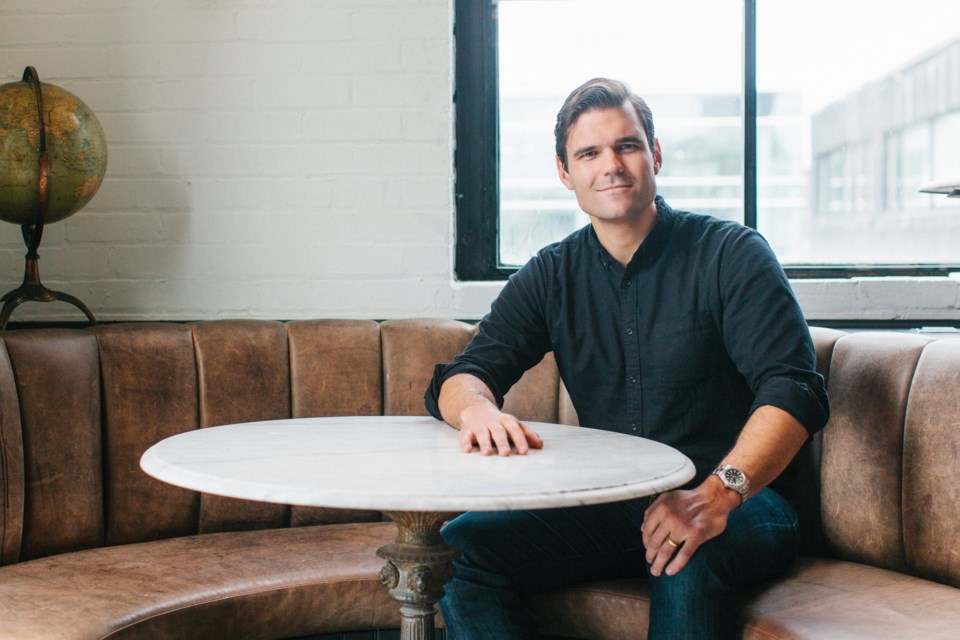An entrepreneur, author, and capital markets professional with lifelong ties to Orillia has penned a new book about the internet’s next frontier that debuted at No. 5 on The Wall Street Journal’s bestseller list.
Alex Tapscott’s new book, titled Web3: Charting the Internet’s Next Economic and Cultural Frontier, serves as a roadmap to the incoming third era of the internet – which arises amid rapid advances in a variety of interrelated technologies and fields, and will bring increased opportunities for internet users to own their data, creations, and more.
“We're in this really interesting period of time where many technologies are all kind of emerging at once,” Tapscott said. “What's interesting about them is that they're not separate, but related, and I think that this term, Web3, is going to help to sort of describe the ways in which all of these technologies are going to change business and culture and society.”
More important than any individual technological advancement, however, is how they will ultimately work together, Tapscott said.
“Those technologies include things like blockchain and artificial intelligence and virtual reality and robotics, and so forth, but it's not those technologies in and of themselves that's interesting, it's how they converge,” he said. “The book describes that convergence and talks about the ways in which it's going to impact the world.”
Web3 represents a further evolution to the first era of the internet, where users simply accessed information from websites, and the second era – the social media era – where “everyone became a publisher of photos and their thoughts,” Tapscott said.
“The most important asset class of that era was really user generated data, but what happened was all of that data was captured by a handful of big companies who provided some basic service or exchange (and) have reaped all the rewards,” he said.
“The value of all the companies that grew tremendously during that period of time is over $10 trillion, and that's value that is not shared with the people who created the data.”
One significant aspect of Web3 is that internet users will be able to reclaim ownership over their “digital selves.”
“That basically means being able to own your own data, and your identity, to be able to own your own creations, and to participate in the upside from that, and also to be able to transact and move value peer-to-peer,” Tapscott said.
“That's something that is an evolution of where the web was before, and I think that it's going to impact a lot of industries. It's also going to impact what it means to be an internet user and citizen.”
Innovations like blockchain, which led to the rise of bitcoin and other cryptocurrencies, allow individuals and businesses to conduct transactions on a peer-to-peer basis, where they formerly had to rely on “middlemen” like banks or credit card companies, Tapscott said.
With Web3 internet users will be able to use blockchain “tokens” to store and share a wide range of commodities, from money and stocks, to art and scientific discoveries, and more.
“In the same way that a shipping container can contain furniture and food and computers and carpets, and what have you, a token can … represent anything of value,” Tapscott said.
Building on that, Tapscott views internet users on Web3 as internet “owners” who can claim ownership over the myriad services they participate in online.
“Everybody will be an owner of the services and applications that they use online,” he said. “You might sign up for a social media application, or some financial application online, and the more you use it, the more you will earn on that platform. Because you are adding value to the platform, you should be compensated for it.”
Tapscott said these developments will have deep implications for financial services, the arts, and a variety of other industries.
With the rise of artificial intelligence, blockchain technology can ensure content creators are attributed ownership, and compensated for their information when it’s used by an AI application, as an example.
Those in the music industry, as well, will be able to manage their assets in a more secure manner.
“With the rise of the first era of internet … it's turned something that was an asset, like a CD or record, and made it a free commodity,” he said. “We need a new way to allow artists and creators to be able to sell their work, to be able to connect with fans, and to ensure they get paid, and you can do that, as well, with tokens.”
Other services, like Google Maps, could lose their monopoly status through Web3, as well.
Using the blockchain, citizens can participate in projects like Hivemapper, a decentralized mapping service where users voluntarily gather mapping data through dashcams and get compensated for their mapping data.
“Rather than being a passive recipient of Google's mapping data, you can be an owner in Hivemapper itself, so this is an example of a user road network that combines data, blockchain and AI,” Tapscott said.
“Many will realize that it could actually make a material difference financially, but in the end, we'll all be benefiting from more choice in terms of where we get our mapping information, better data, and that'll improve everybody's lives.”
Those interested in reading Tapscott’s book may find it here.



